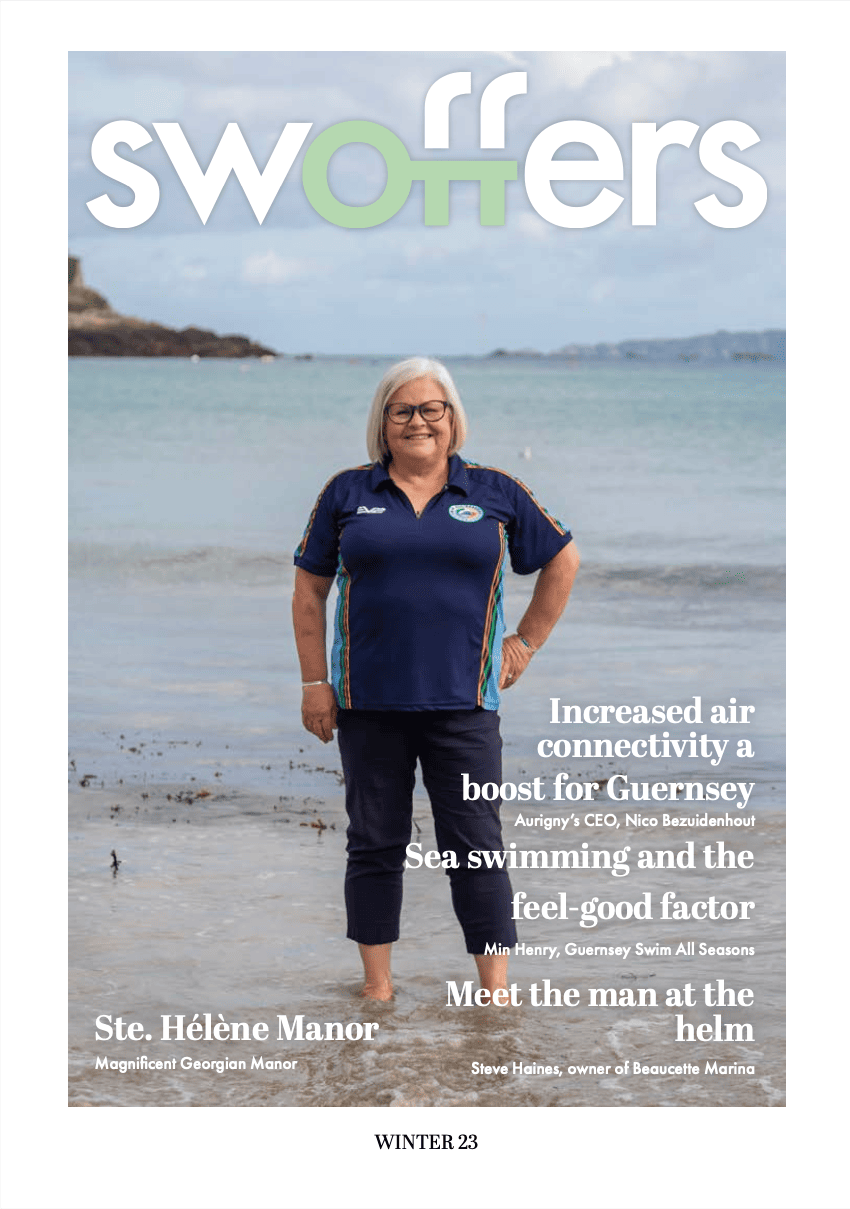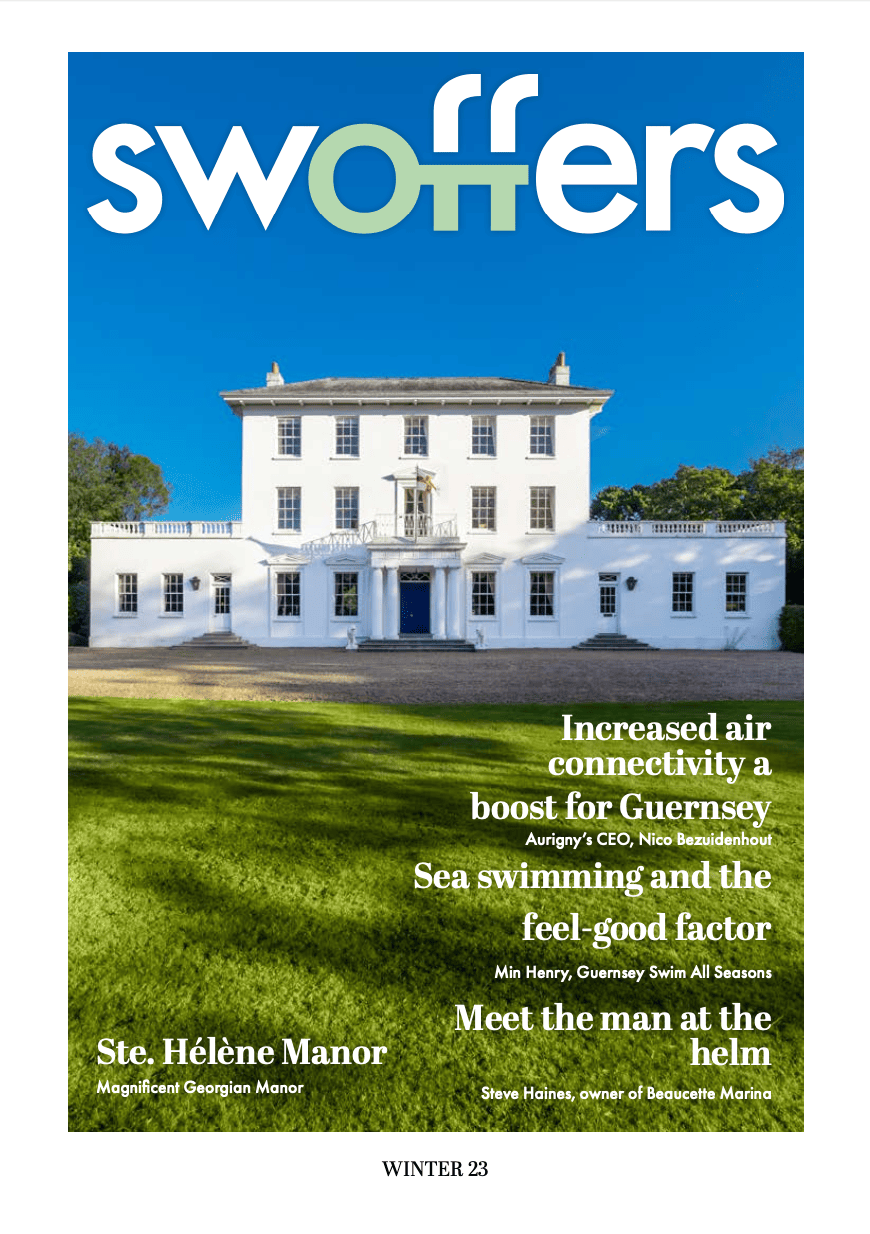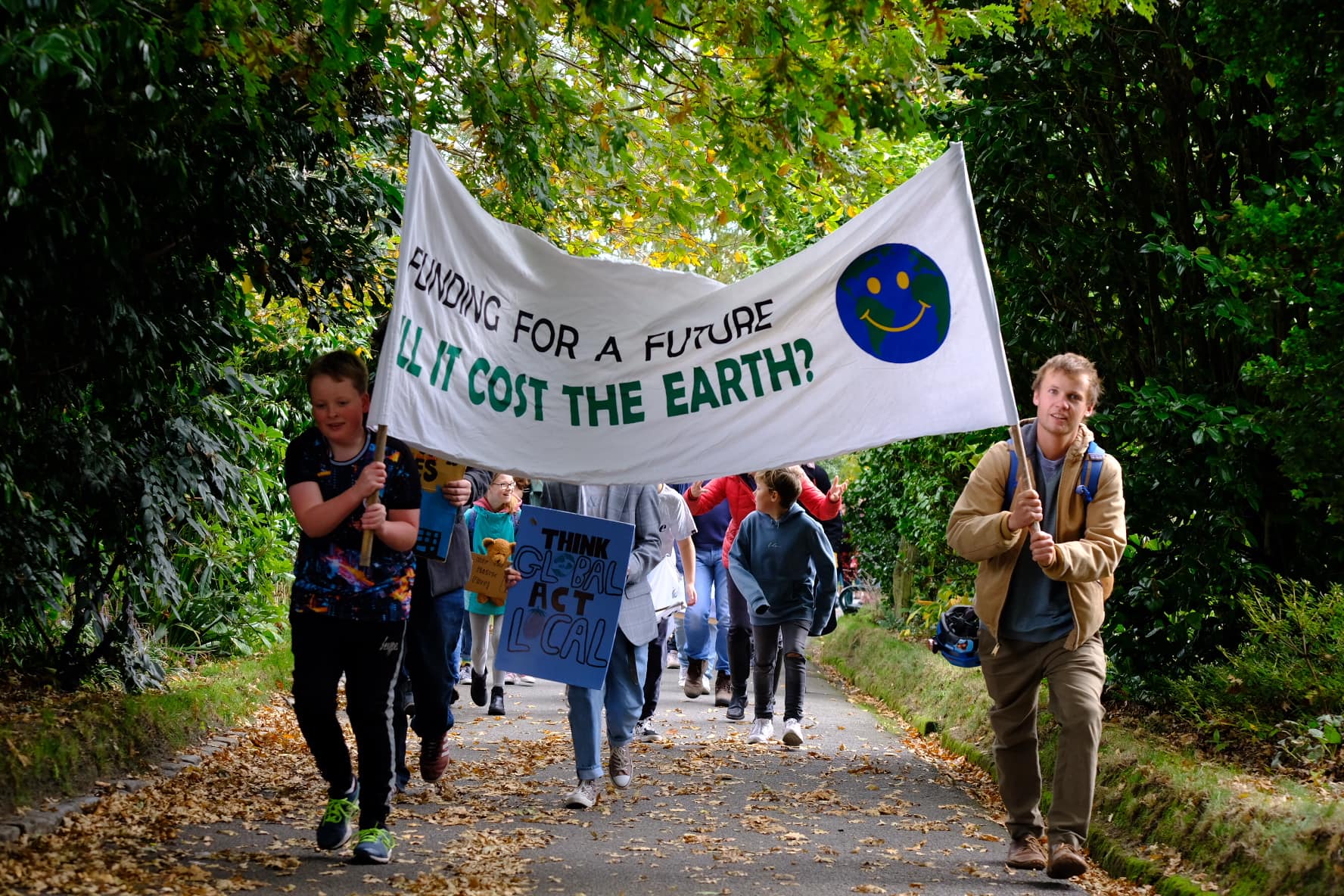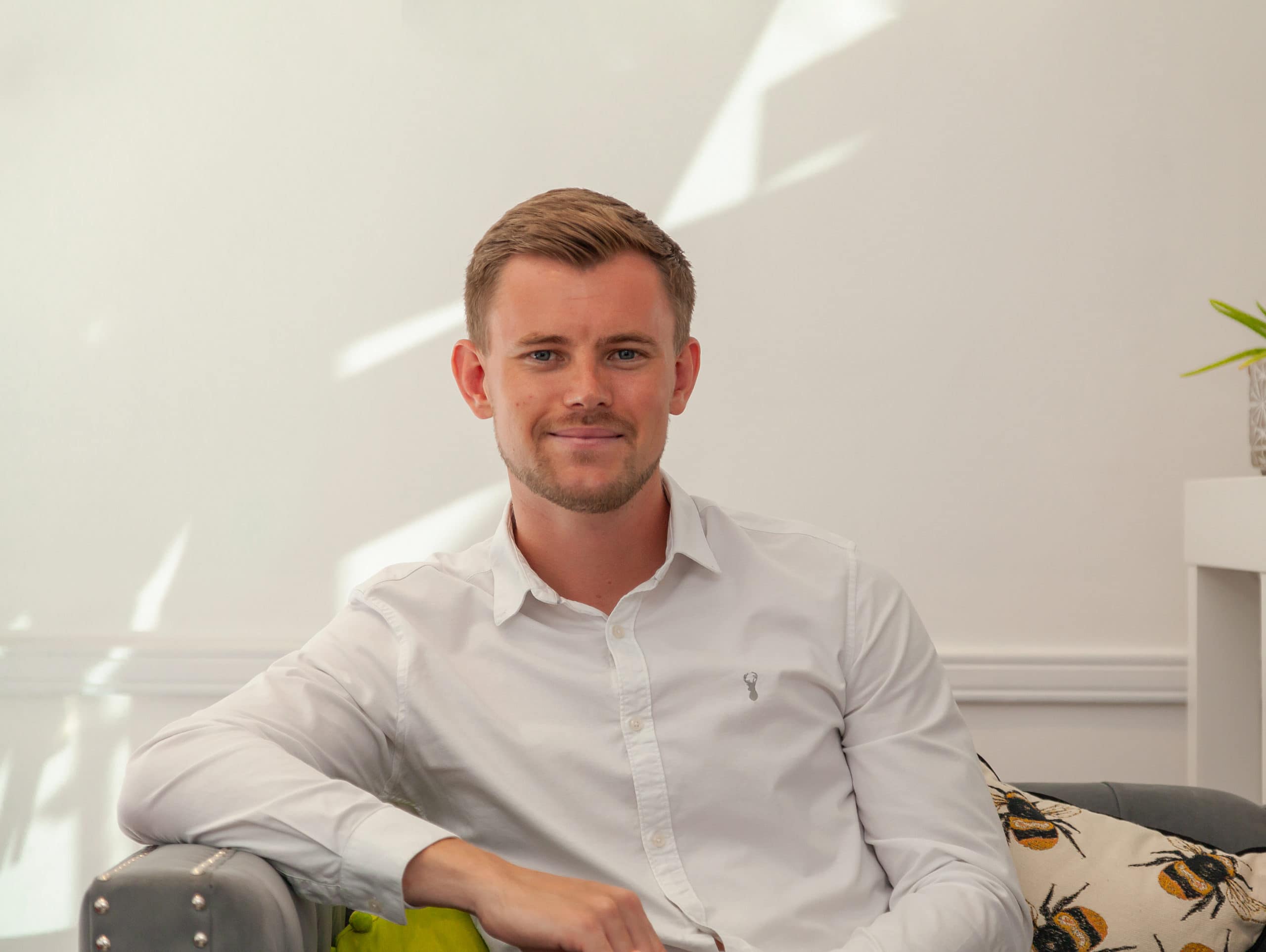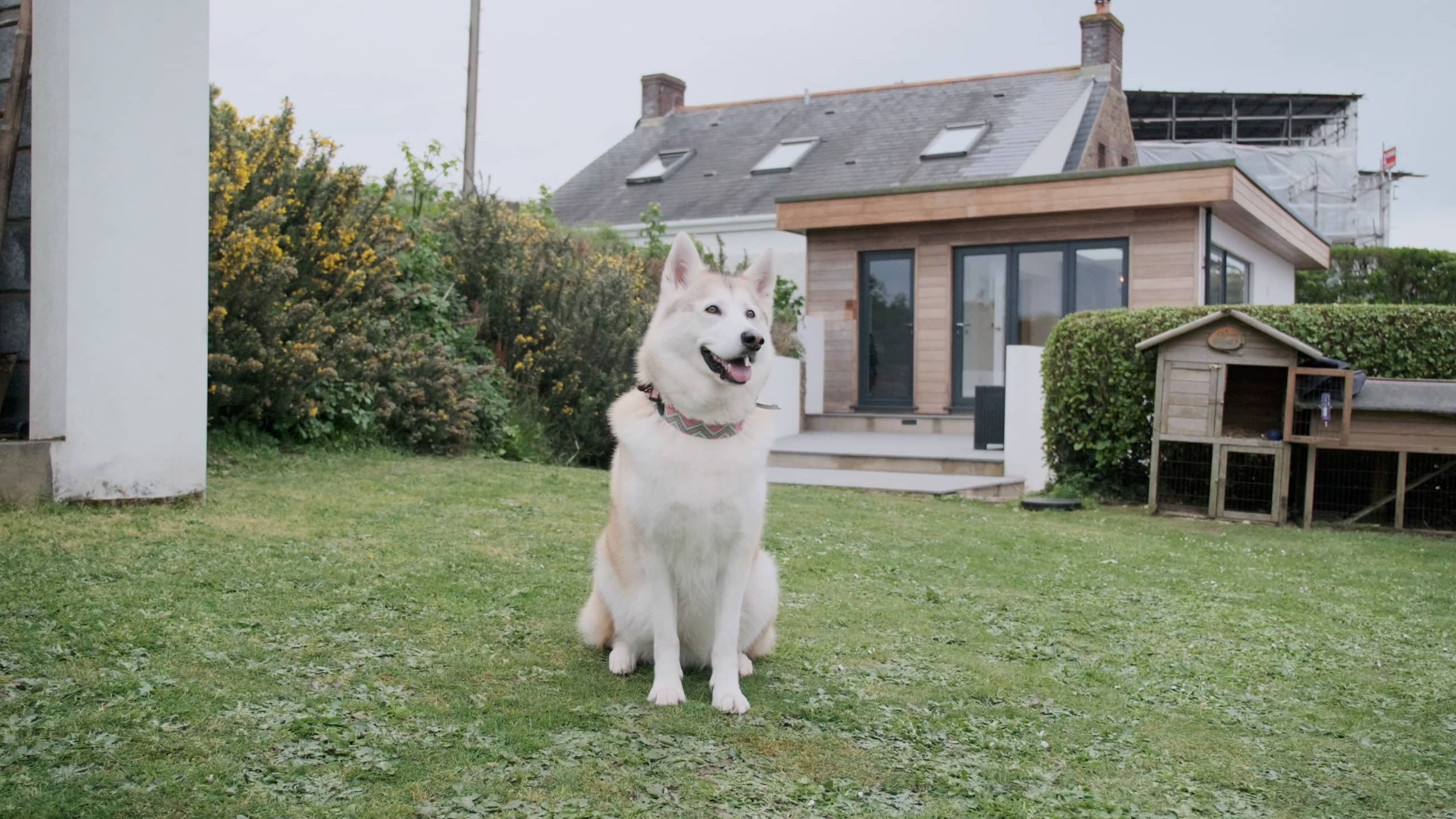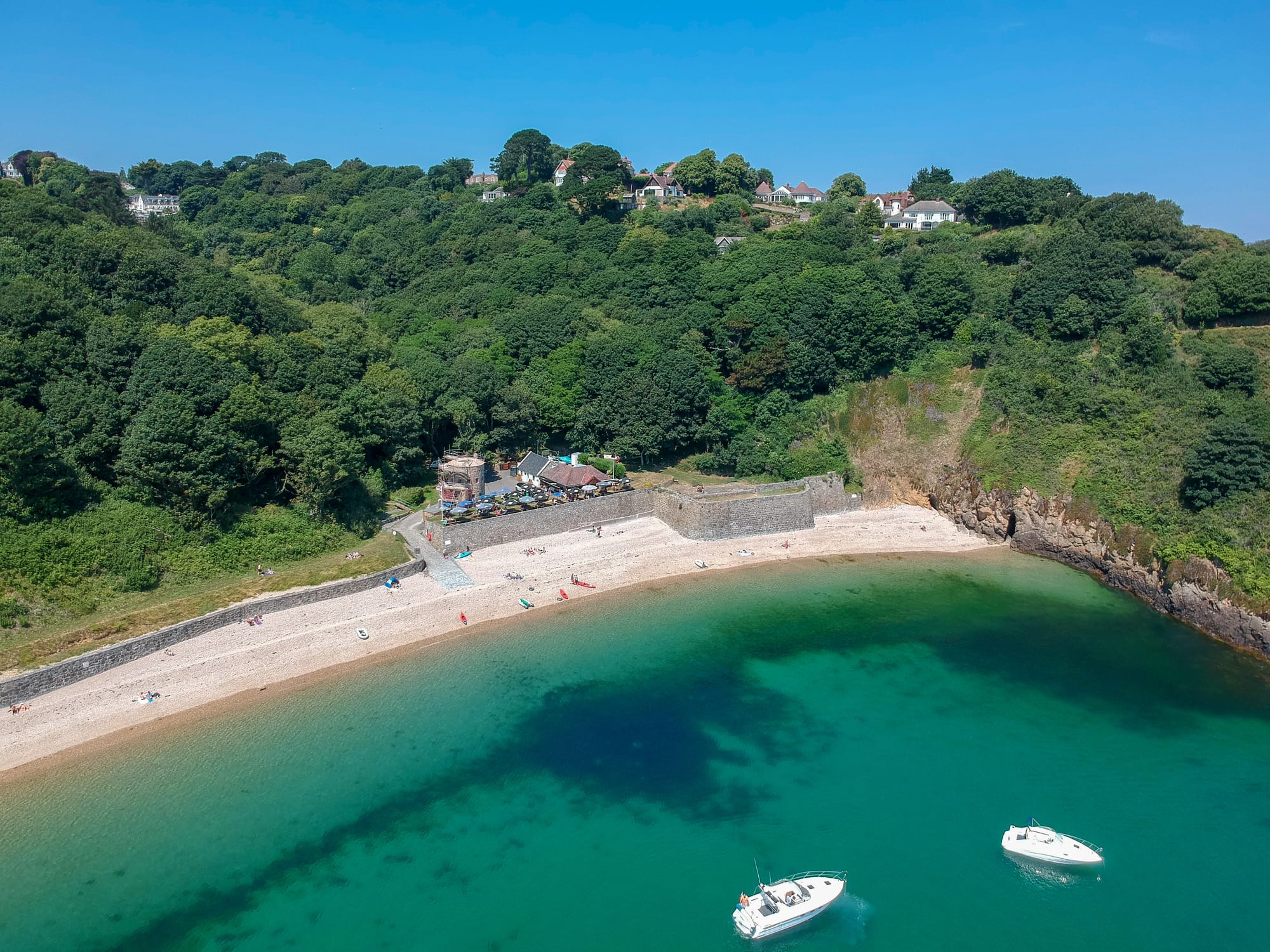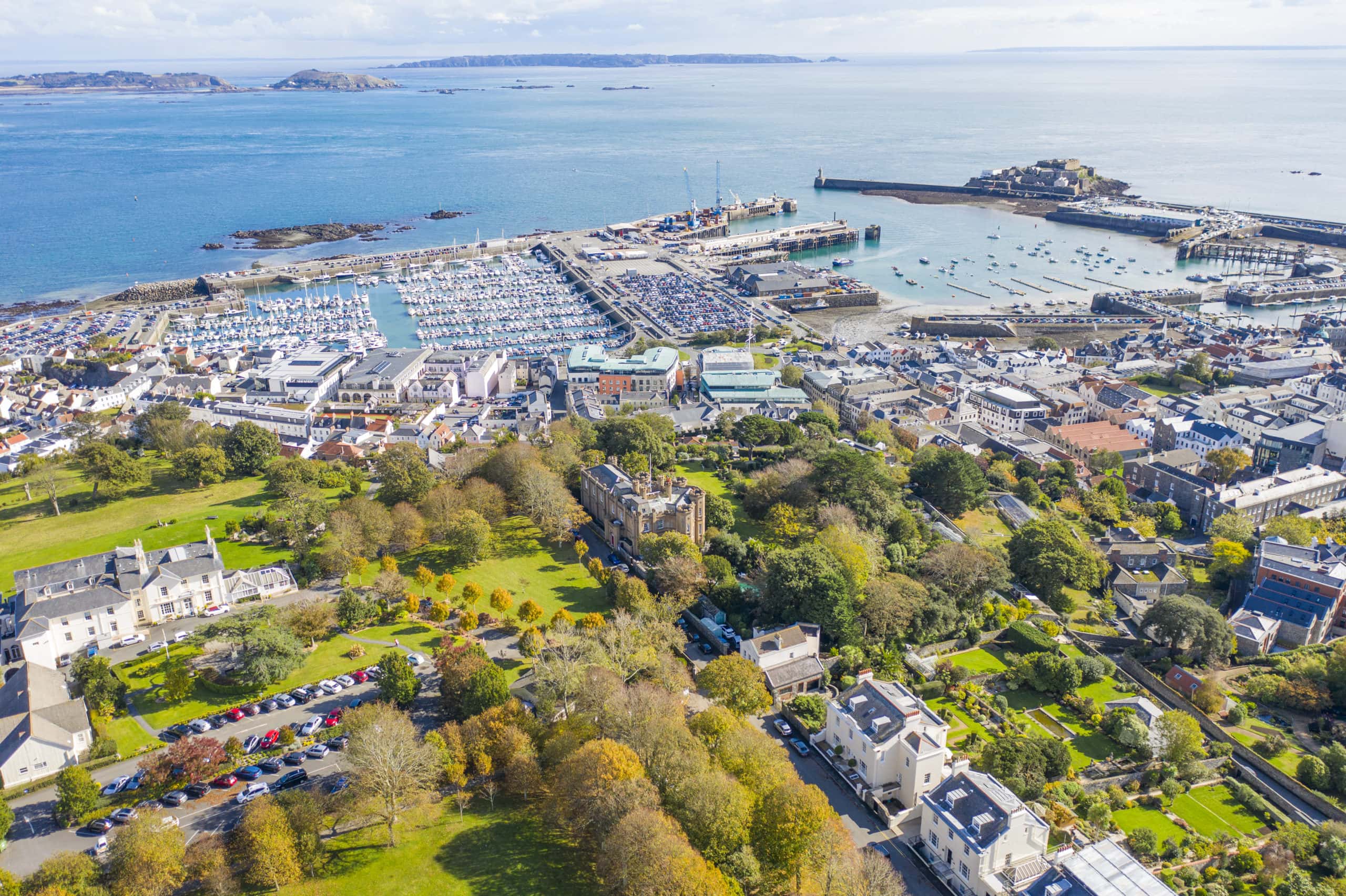The Clean Earth Trust is a Guernsey-based charity helping to limit human impact on the environment. Helen Quin, Head of Operations, talked to us earlier in the year about the issues we face and what we can do to improve the health of our island and its inhabitants.
Andrew Munro was with his family in Herm when, picking up a chocolate wrapper, he considered what a huge difference it would make if everyone picked up one piece of litter every day. With a desire to spark an individual responsibility for taking care of their environment, Andrew started the #pickitupguernsey campaign to deal with the problem of discarded cigarette butts. After winning awards for his participation in the community, Andrew established The Clean Earth Trust in 2018 and Helen Quin took on the role of Head of Operations, alongside a team of volunteers.
Helen herself had wanted to change the direction of her career following something of an epiphany when she was working in Montenegro: ‘I was having lunch at one of my favourite waterside restaurants in the Bay of Kotor. It was completely magical, and I realised that I loved it so much because it was a family-run business, and it was affordable and fresh because the food came from outside their front door,’ says Helen. ‘The sky was clear, the air was clean and the water was beautiful. I was working for a super-yacht marina and luxury residential property developer in the Bay at the time and the area was changing at pace. I couldn’t get it out of my head that we were impacting nature heavily and essentially destroying everything I loved about living there – I was part of the problem, so I resigned shortly after.’
For those of us living in Guernsey, it is no longer possible to feel disconnected from the crisis facing our planet. As Helen points out: ‘We’re really privileged in Guernsey to have such an incredible infrastructure that supports us, especially with our waste. We leave our waste outside our front door at night and it’s gone by the next morning. We don’t have to think about the impact our choices are having. It’s easy to forget who is paying for it, too: as a consumer, we’re paying for the production of that product and its packaging, the shipping of that product, the actual product, and then the disposal of that product, and then the after-effects of that product going back into the ecosystem in some way, either being recycled, put into landfill or burned. We actually have a great deal of control and influence through our consumption choices.’
We are all aware that plastic is a huge problem for the environment. ‘Plastic pollution is complete insanity on our part. There’s been no long-term thought put into the use of this material, which has a very short lifecycle, and we’re so overrun by it, it’s become commonly accepted that it ends up in the sea. The Great Pacific Garbage Patch is three times the size of France, how are we not all outraged by this? It comes down to the way that we live our lives, with the constant need for convenience and immediacy with everything,’ says Helen, who remembers the first time she saw evidence of microplastics on Grandes Rocques beach. ‘My heart broke, because I’d never seen it here before. Ignorantly, I’d thought it was something we wouldn’t be affected by here in Guernsey. It was a stark reminder of our interconnectedness,’ she recalls. ‘Food-related waste is the biggest contributor to what we’re seeing on our beaches. Even fishing gear, it’s all about food and how we transport and consume it. There’s no reason in Guernsey for any of us to drink a bottle of water – we’ve got an incredibly high standard of water here. In Paris they’ve got an incredible tap refill system, including sparkling water, and you can buy reusable bottles from vending machines. If Paris can do something like that, why can’t we?’
It’s easy to despair at the apathy surrounding the need to make the changes that are needed. ‘Change can be difficult and uncomfortable, but change is a certainty and it will happen whether we choose it or not. We have to ask ourselves, what role do we want to play in climate change? How do we want to leave this planet for our children and beyond? They’re the ones who are going to be picking up the tab for the impact of our current lifestyles,’ says Helen. ‘The train has left the station and we’re trying to catch up. But we’ll never catch up if we don’t start moving.’
The good news is that The Clean Earth Trust is doing a lot. ‘It’s growing all the time, and we’re so grateful for the positive response to the charity over the past 18 months. It’s inspiring to know that there are people out there who believe in what we’re doing and are empowered to take responsibility for our community and our environment. We have a fantastic team of volunteers who have all got their own day jobs, but are still willing to give extra time to contribute and help spread the word. And we’ve got a real range of background and experiences on the team – climate change and environmental degradation is relevant to, and will impact, everyone,’ says Helen.
We can’t afford to be complacent in Guernsey. ‘We are lucky enough to have nature on our doorstep, but nature needs us to step up and protect it. It’s the very source of what we need to survive – no environment, no economy! There’s a dominant industry in Guernsey which isn’t focused on nature but is highly influential and could create very tangible change. It’s part of our role to reach the whole community and inspire positive change for the environment.’
Getting involved with The Clean Earth Trust’s many initiatives is an ideal place to start protecting what we have. Beach cleans take place every weekend: ‘Our beach cleaning team is fantastic, getting stuck in whatever the weather and surveying what they collect so we can monitor the types of waste that are washing up on our shores. They do an amazing job, and with such good spirits.’ Taking part is a great opportunity for children to learn about personal responsibility, whilst getting outside in nature.

The Repair Cafe team has a team of 17. ‘We’ve got someone who looks after musical instrument repairs, and someone who can fix small electrical goods. We’ve got quite a few seamstresses, someone who looks after reupholstering furniture and a leatherwear repairer. And then we’ve got a great group who look after the clothes swap, they’re really passionate about circular fashion.’ Other initiatives include the 30 Sustainability challenge, Adopt a Patch and the Litter Picker Lending Scheme.
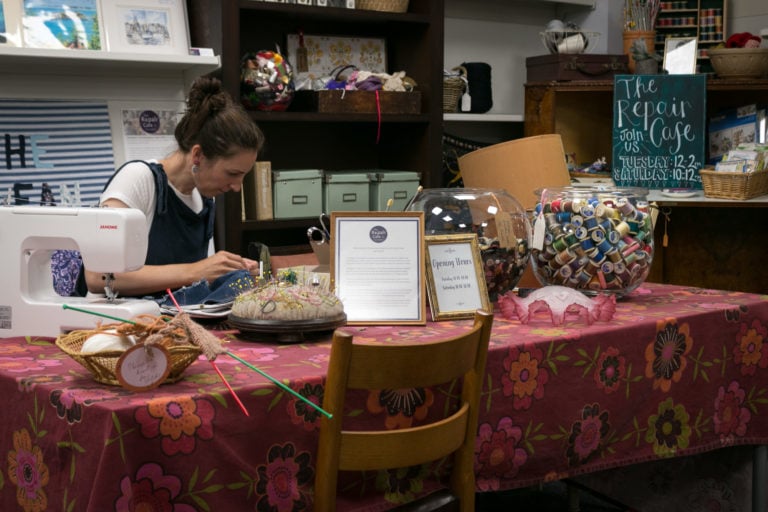
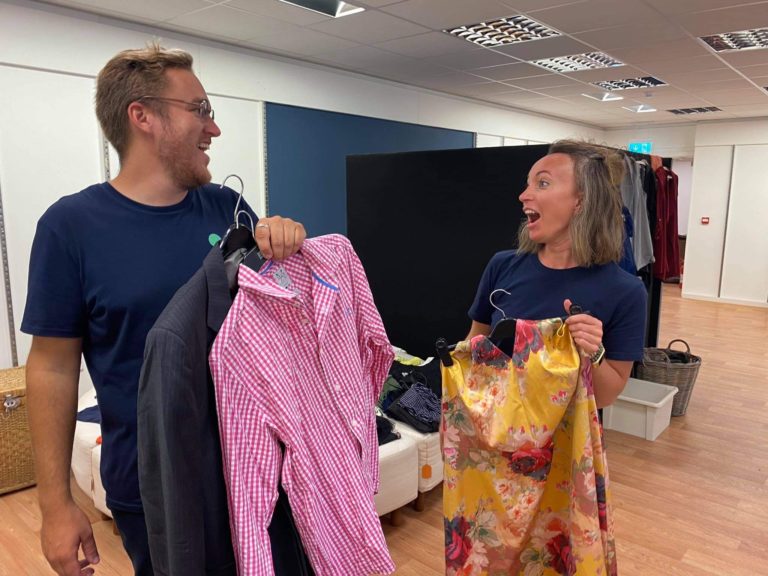
What is crucial is to let go of the feeling that we can only ever be a drop in the ocean. As Helen says: ‘Don’t underestimate your own individual power and influence – it takes individuals. The Paris Agreement was put together by a group of individuals and if they hadn’t had the passion and determination to get it over the line, where would we be now? And it doesn’t have to be world-changing to be worth doing. If you can influence your immediate friends and family, that’s enough. The premise of the charity is to seed that individual responsibility and get people to look at the way that they’re interacting with their natural environment and to make better choices. A healthier planet means healthier people, after all.’
To find out more about The Clean Earth Trust and how you can get involved, take a look at cleanearthtrust.org.
